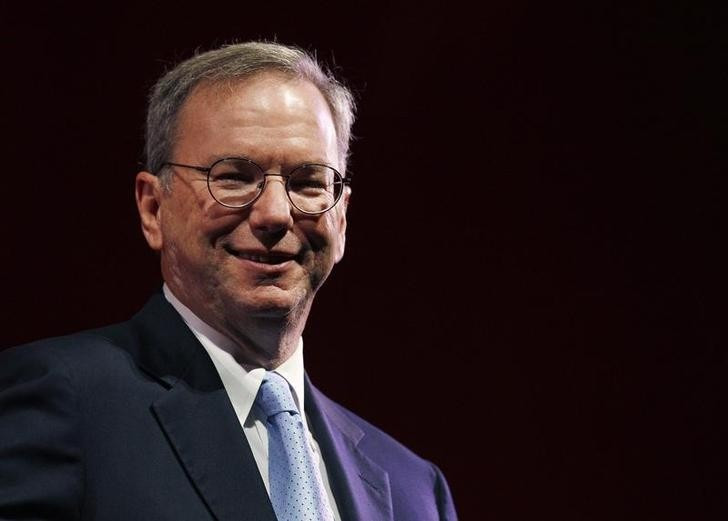Google's Eric Schmidt calls for new tools to clamp down on Isis propaganda

Google chairman Eric Schmidt has urged technology companies to create new tools to disrupt the online propaganda of terrorist groups such as the Islamic State (Isis). In an article in the New York Times, Schmidt said Silicon Valley could develop hate speech "spell-checkers" and engineer new ways to identify and take down videos posted on the internet by the IS (Daesh) before they spread.
Censorship of the web and intrusions of privacy would represent steps in the wrong direction, he argued. Schmidt's editorial comes in the wake of the deadly shooting in San Bernardino, California, last week in which 14 people were killed.
US officials say the assailants — Syed Rizwan Farook, 28, and Tashfeen Malik, 27 — were radicalised, with Malik reportedly pledging her allegiance to IS leader Abu Bakr al-Baghdadi through social media on the day of the attack.
Tech companies have been under pressure to make it easier for governments to access private communications since the 13 November Paris attacks.
Target online propaganda
"As with all great advances in technology, expanded web access has also brought with it some serious challenges, like threats to free speech, qualms about surveillance and fears of online terrorist activity," Schmidt wrote.
"For all the good people can do with new tools and new inventions, there are always some who will seek to do harm. Ever since there's been fire, there's been arson."

He cited propaganda videos posted online by the IS as an example of the internet's power being misused and called for "leadership" from governments and tech companies to help tackle the problem. "We should build tools to help de-escalate tensions on social media — sort of like spell-checkers, but for hate and harassment," Schmidt wrote.
"We should target social accounts for terrorist groups like the Islamic State, and remove videos before they spread, or help those countering terrorist messages to find their voice. Without this type of leadership from government, from citizens, from tech companies, the internet could become a vehicle for further disaggregation of poorly built societies, and the empowerment of the wrong people, and the wrong voices," he warned.
© Copyright IBTimes 2025. All rights reserved.




















